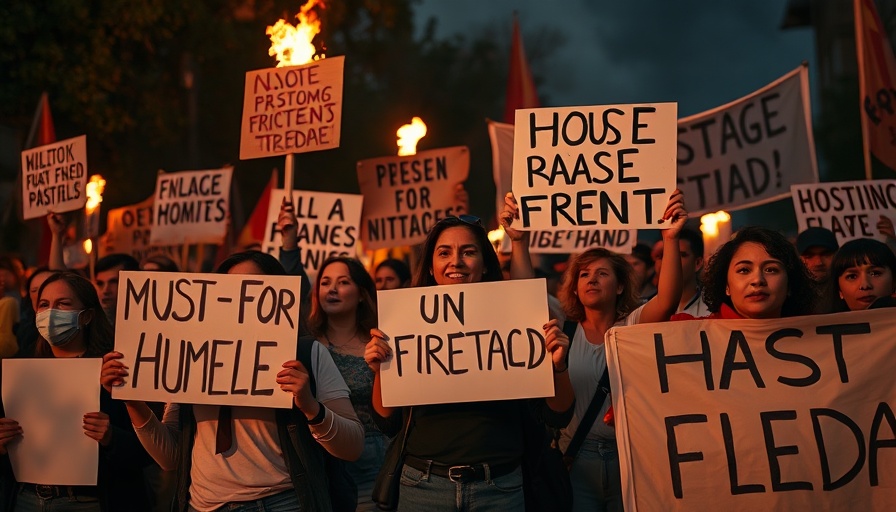
A Bold Move on the High Seas: Greta Thunberg's Gaza Mission
In a controversial and high-stakes incident, environmental activist Greta Thunberg was deported from Israel after her participation in a Gaza-bound aid mission. The vessel, named Madleen, was seized by Israeli forces while attempting to deliver humanitarian aid. The aim? To draw attention to the dire humanitarian crisis in Gaza, which has persisted under the ongoing blockade.
Humanitarian Crisis Highlighted
The Freedom Flotilla Coalition, which organized the mission, criticized the Israeli government for intercepting the yacht carrying essential supplies, including baby formula and medicine. This action comes amidst rising concerns about starvation conditions in Gaza amidst ongoing conflicts that have left many residents vulnerable.
The International Response
Following the incident, responses poured in from various governments, emphasizing the need for humanitarian support in Gaza. France’s Foreign Minister, Jean-Noel Barrot, confirmed that six French nationals, including members of the European Parliament, faced deportation while stressing the necessity of addressing the humanitarian crisis without punitive measures against activists.
Legal Implications of Activism
Thunberg's deportation highlights the legal complexities surrounding activism in conflict zones. For activists, it raises questions regarding the legality of international aid efforts in areas under military blockade. Legal professionals might find the balancing act between humanitarian law and national security to be a focal point of discussion, especially as this incident unfolds in the public eye.
This situation underscores not only the challenges faced by activists but also the broader implications for international humanitarian efforts in troubled areas. Thunberg's involvement, while seemingly symbolic, presents a unique opportunity to spark dialogue about humanitarian access in regions impacted by conflict. As legal challenges ensue, and debates on humanitarian rights progress, it will be crucial to monitor how such actions influence both public opinion and policy changes moving forward.
 Add Row
Add Row  Add Element
Add Element 



Write A Comment